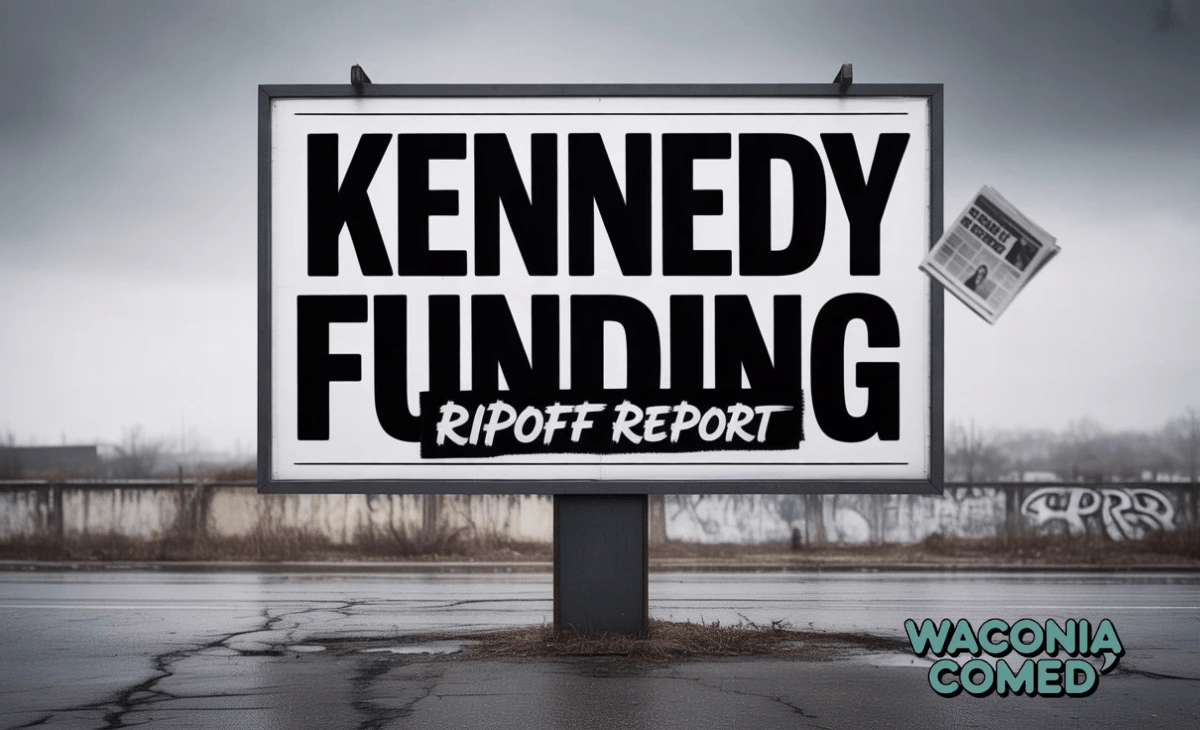When potential borrowers search the phrase “Kennedy Funding ripoff report,” they’re typically not browsing out of idle curiosity. They’re likely exploring a funding option for commercial real estate deals and have come across conflicting narratives. Maybe they saw bold claims about fast closings and unconventional loan structures — then stumbled upon a few troubling reviews that raised red flags. So what’s the real story?
Let’s get real and dig deep. As someone who has worked in the alternative lending industry for over a decade, I’ve personally seen how misunderstood these kinds of lenders can be. Yet, transparency and accountability are non-negotiable. This article exists to clarify the noise, separate opinion from fact, and guide you with clear, experience-backed insights.
What Is Kennedy Funding and Why the Buzz?
Kennedy Funding is a direct private lender known for specializing in hard money loans, often for complex or high-risk commercial real estate transactions. They focus on speed, international flexibility, and situations traditional banks reject. For instance, they’ve funded resort projects in South America, raw land in Eastern Europe, and distressed properties in the U.S.
The interest around Kennedy Funding ripoff report concerns arises from a few online complaints — typically regarding denied applications, communication issues, or misunderstood loan structures. In reality, the borrowing landscape they serve is niche and inherently riskier, which leads to polarized experiences.
Why Some Borrowers Cry “Ripoff” — And Why Most Don’t
When evaluating Kennedy Funding ripoff report concerns, one consistent thread appears: mismatched expectations.
Private lenders don’t operate like banks. Their approval criteria, terms, and underwriting style are different by design. Borrowers new to this world sometimes assume bank-like experiences, which is where problems start. If you’re expecting a 3% fixed rate and a six-month review process, Kennedy Funding will feel aggressive or even “predatory.”
However, for developers who’ve done their homework and understand hard money lending, Kennedy Funding delivers value: speed, decisiveness, and flexibility. I’ve personally consulted clients who received funding approvals from them within 10 business days — for deals that had been dead in the water for months elsewhere.
Understanding the Root of Kennedy Funding Ripoff Report Posts
Most Kennedy Funding ripoff report complaints boil down to three areas:
- Miscommunication or misunderstanding: Some borrowers didn’t fully grasp the terms — especially around interest rates, prepayment penalties, or upfront fees.
- Application rejection: Unlike banks, Kennedy Funding may quickly decline deals that fall outside of their risk model. Borrowers with unrealistic expectations sometimes perceive this as a bait-and-switch.
- Delays in disbursement: In some international deals, third-party factors like legal vetting, title verification, or local bureaucracy cause holdups — which get blamed on the lender.
It’s vital to note that none of the most visible Kennedy Funding ripoff report entries appear to be from closed loan recipients alleging fraud. Rather, they’re usually pre-closing grievances.
Lessons from Real Borrowers: A Mixed Bag, But Mostly Positive
In working with borrowers in distressed real estate, I’ve seen a pattern. Those who approach Kennedy Funding with full documentation, realistic timelines, and a project that meets their risk profile often leave satisfied. In one case, a client received a $3 million loan for a hotel project in Belize — after being turned down five times by other lenders.
But I’ve also seen clients get burned by misunderstanding what a term sheet really means. Kennedy Funding, like all private lenders, issues conditional offers. If a borrower skips due diligence or fails to meet certain criteria, funding won’t proceed. That’s not a scam — that’s risk management.
Still, this is where some Kennedy Funding ripoff report noise comes from: a perception that a soft commitment equates to guaranteed funding.
Red Flags to Watch — Regardless of the Lender
Whether you’re dealing with Kennedy Funding or another hard money lender, a few things should always prompt caution:
Be wary if you’re pressured to pay large upfront fees without documentation explaining what those fees cover. Make sure any pre-approval or term sheet clearly states the conditions under which funds will be released. Don’t rely on verbal assurances — get everything in writing, especially timelines and contingencies.
While none of these are unique to Kennedy Funding ripoff report stories, they form the backbone of negative perceptions. That said, the overwhelming majority of borrowers who go in prepared come out better informed and with deals that would not have been possible via traditional channels.
When Kennedy Funding Is the Right Fit
Kennedy Funding is not for everyone. But for borrowers who understand private lending and are navigating land deals, distressed property acquisition, or international real estate, it can be a lifesaver.
If you need to close fast, have collateral-rich but cash-poor deals, or operate in jurisdictions conventional lenders avoid, Kennedy Funding may offer exactly the kind of solution others can’t.
Just be sure to approach them like a business partner — not a traditional lender. Understand their model, ask hard questions, and be honest about your own goals. This mindset eliminates 90% of the friction seen in Kennedy Funding ripoff report narratives.
Practical Guidance Before Applying
If you’re considering approaching Kennedy Funding, take the following steps first.
Start by assembling full, professional documentation of your project: appraisals, exit strategy, current ownership structure, and zoning confirmations. Make sure your project fits their typical loan size, which tends to be between $1 million and $50 million. Know that if you have raw land, partially entitled property, or foreign assets, you’re in their ideal zone.
Then, set realistic expectations. You won’t get bank rates. But you might get a deal that saves your project from collapse.
Frequently Asked Questions
What is Kennedy Funding known for?
Kennedy Funding is a direct private lender specializing in fast, asset-based loans for complex or international real estate transactions.
Is Kennedy Funding a scam?
No, Kennedy Funding is a legitimate lender. Negative reviews typically arise from misunderstandings or unmet expectations rather than fraudulent behavior.
Why do Kennedy Funding ripoff reports exist?
These reports often stem from communication breakdowns, denied applications, or confusion around funding timelines and fees.
Can I trust Kennedy Funding with my project?
If your deal aligns with their risk profile and you’re transparent, yes — many borrowers have successfully funded deals that traditional lenders rejected.
How fast can Kennedy Funding close a deal?
Deals can close in as little as 10–15 days, assuming all documents are in order and title conditions are met.
Are upfront fees with Kennedy Funding normal?
Yes, like many private lenders, they may charge fees for underwriting and due diligence, but these should always be clearly outlined.
Final Thoughts: Navigating Truth in Private Lending
There’s no denying that the alternative lending space has its critics. The Kennedy Funding ripoff report conversation is part of a broader misunderstanding between borrower expectations and private lender realities. For the right project — and the right borrower — Kennedy Funding can be a powerful partner.
But this is not a one-size-fits-all solution. Like any financial relationship, success depends on transparency, communication, and mutual understanding. If you’re reading Kennedy Funding ripoff report reviews, do so with a critical eye — and make sure you’re seeing the whole picture.

